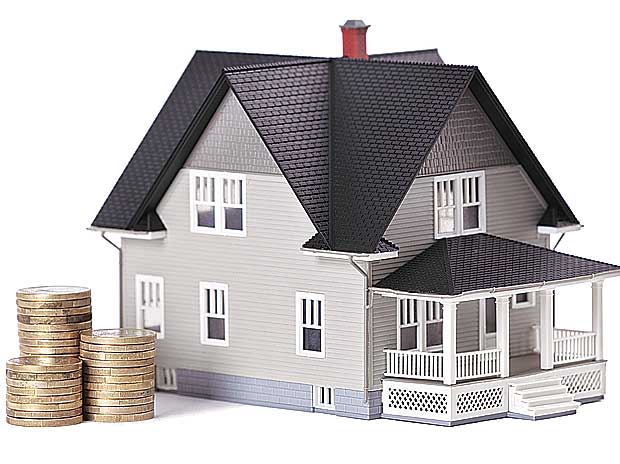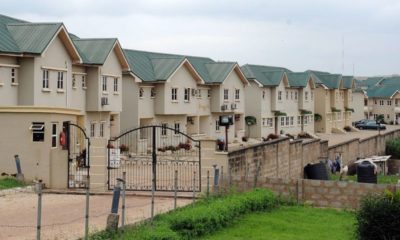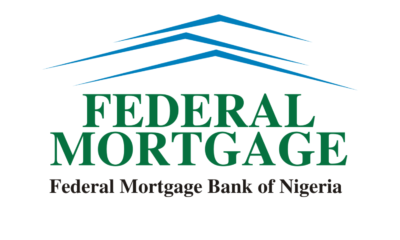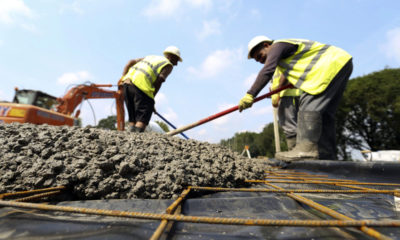Lagos, the bustling economic hub of Nigeria, is currently witnessing a daunting challenge in its rental market as soaring costs make housing increasingly unaffordable for many residents.
The rising prices, driven by poor macro-economic conditions, inflation, high interest and exchange rates, as well as escalating building material costs, have created a daunting situation for renters, pushing the dream of finding suitable housing further out of reach.
Landlords in Lagos, particularly those in highly sought-after areas such as Lagos Island, Ikeja, and Victoria Island, are capitalizing on the high demand for rental properties by substantially increasing rents.
This surge in rental prices has left countless tenants grappling with the harsh reality that their hard-earned incomes may no longer suffice to secure a decent home in a desirable location.
According to Moruf Akinderu-Fatai, the state’s commissioner for housing, the rental market in Lagos is exceptionally active, with a staggering 80 percent of its 20 million population residing in rented accommodation.
Among the various types of housing available, 2-bedroom flats are witnessing the highest demand. This surge in popularity can be attributed to a multitude of factors, including the economic challenges that have caused many individuals to lose their jobs or face salary cuts.
Also, young executives and aging individuals seeking downsized living spaces often find 2-bedroom flats to be the ideal choice.
In Lagos, the average rental price for a 2-bedroom flat stands at ₦2 million per annum. However, the rental spectrum is vast, with the most expensive flats commanding a staggering ₦14 million per annum, while the cheapest options are listed at ₦350,000 per annum.
Such exorbitant prices have left prospective renters in a predicament, struggling to find affordable options that meet their needs.
Nevertheless, amidst the bleak rental landscape, there are a few pockets in Lagos that offer some respite for tenants seeking moderately priced housing. Locations such as Ilupeju, Gbagada, and Surulere, which are considered middle-class settlements, present opportunities for tenants to secure 2-bedroom flats with rents ranging from ₦1 million to ₦2 million per annum.
Ilupeju, affectionately known as ‘Indian Village,’ is located on the Lagos mainland within the Mushin Local Government Area. This area attracts tenants not only due to its well-developed road infrastructure but also its accessibility and ease of transportation to other parts of the city. The average rent for a 2-bedroom flat in Ilupeju is approximately ₦1.5 million per annum, with rental prices spanning from ₦1 million to ₦4.9 million per annum, depending on the specific property.
Gbagada, positioned between the Kosofe and Shomolu local governments, is another favored location for renters. Despite the slightly higher prices, Gbagada’s prime positioning and residential ambiance make it an appealing choice. The average rent for a 2-bedroom flat in Gbagada hovers around ₦1.7 million per annum, while the rental range extends from ₦720,000 to ₦2.9 million per annum.
Surulere, a residential and commercial Local Government Area on the Lagos mainland, commands relatively higher rental prices due to its close proximity to Lagos Island, the city’s economic center. The average rent for a 2-bedroom flat in Surulere stands at ₦1.6 million per annum. The rental spectrum in Surulere spans from ₦584,000 per annum for the cheapest flats to ₦3.5 million per annum for the most expensive options.
As the rental crisis in Lagos deepens, prospective tenants find themselves in a precarious situation. Balancing affordability and location preferences has become an arduous task, with limited options available. Renters must exercise caution and thoroughly navigate the challenging housing market to secure suitable accommodation that aligns with their budgetary constraints and lifestyle needs. Unless effective measures are implemented to address the affordability crisis, Lagos residents may continue to endure the hardships of an increasingly unattainable rental market.














